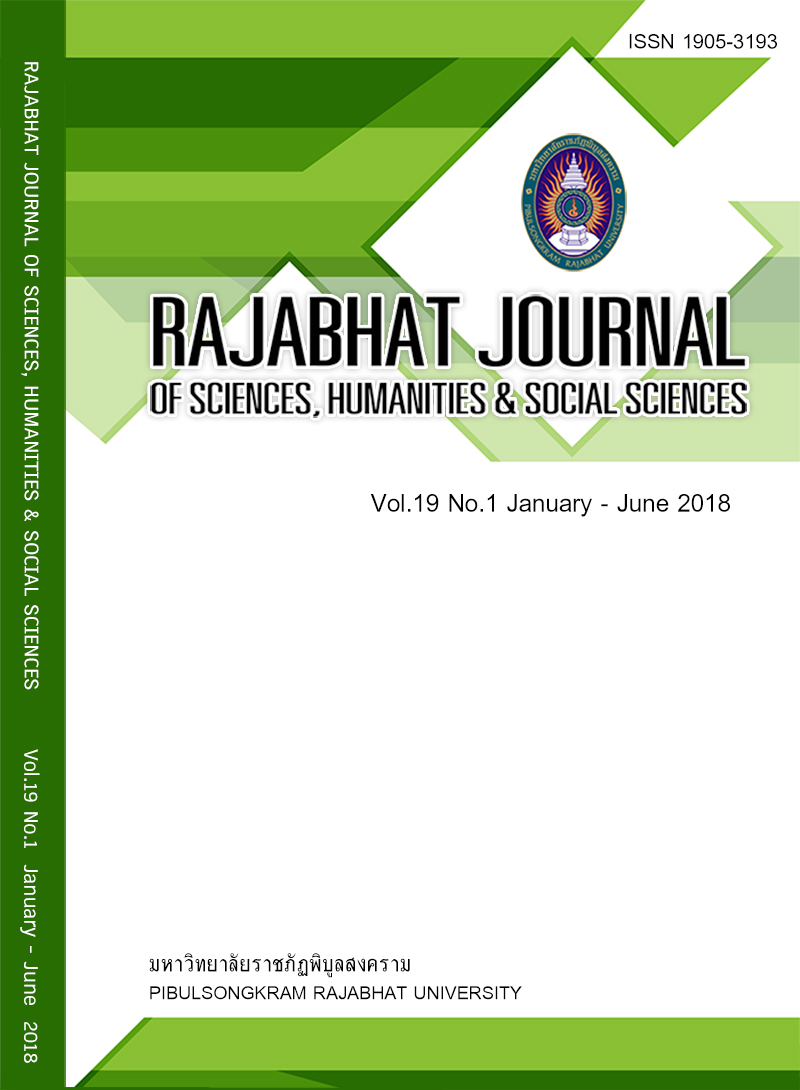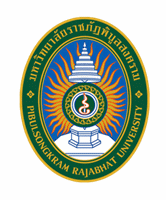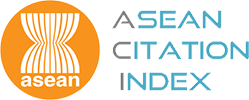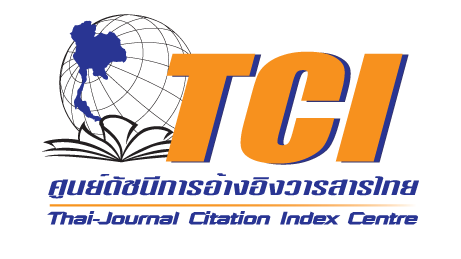THAI SONG DAM TEXTILES: PRODUCT DEVELOPMENT BASED ON THE CREATIVE ECONOMY BY ADOPTING THE CONCEPT OF POSTMODERNISM
Keywords:
handicrafts, weaving, postmodernism, Thai Song Dam, local fabricAbstract
The objective of this research is to develop Thai Song Dam products for the creative economy based on the concept of post-modernism. This qualitative research focuses on the data gathered from five western provinces of Thailand. Three groups provided data for the investigation: key informants, casual informants and general informants. According to the research findings, the wisdom of textile weaving used among Thai Song Dam people in the west of Thailand is directly influenced by diverse cultures of ancestors from Phetchaburi province. Presently, problems related to Thai Song Dam textile production are a lack of inheritors in practical hand-embroidery skills, fabric patching, and sewing. In addition, having community leaders who are too conservative is one of the factors that disallows exposure, and changes of lifestyle among Thai Song Dam people. Product development in the creative economy by adopting the concept of postmodernism is a new method to establish uniqueness by focusing on multipurpose usage. The created products can be utilized by all age groups and genders. Natural materials found within the community are used in the product creation by focusing on the characteristics of conflict or contrast. By maintaining the traditional identity of Thai Song Dam textiles, the new products’ styles and uses should be acceptable among Thai Song Dam people and still remain traditional. Additionally, the concept of development could be advanced by establishing systematic production standards. Significantly, the cooperation of product makers, funding sources, and public relations are also major factors.
References
Bunmi T. Modern and Postmodern. Bangkok: Silpakorn University Press, 1978.
Changmuong W, Numahan P, Sutisung S. Development of Thai-China ethnic clothes approach to ASEAN Community: A case study of Thai Song Dum and Guangxi Zhuang. Applied Mechanics and Materials, 2016; 848: 232-235.
Chartrand HH. The crafts in the post-modern economy, Journal of Cultural Economics. 1988; 12(2): 39-66.
Chomphunit N. Lao Song customs in Kohraed Village. Nakhon Pathom: PhetKasem Press, 1996.
Elleh N. Architecture of the Underprivileged Classes and Cubism. In: Elleh N. Reading the architecture of the underprivileged classes. London: Routledge, 2014; 153-172.
Fischer MM. Ethnicity and the Post-Modern Arts of Memory. In Writing culture: The poetics and politics of ethnography. London: Routledge. 1986, 194-233.
Ketthes B. Anthropology and Culture. Mahasarakham: Mahasarakham University Press, 2008.
Lash S. Sociology of Postmodernism. London: Routledge, 2014.
Lisuwan W. Local Handicrafts. Bangkok: Ammarin Printing, 1992.
Lyotard JF. The Postmodern Condition: A Report on Knowledge. Geoffrey bennington and brian massumi. Minneapolis: University of Minnesota Press, 1979.
Nakkhong A. Indigenous Handicrafts and Indigenous Handicraft Work in Thai society. In Seminar presentations of the center of indigenous studies. Songkhla: Srinakharinwirot University, 1980.
Namat P, Sawasdio A, Supawiree R. et al. Clothes and Knowledge Inheritance of Clothes: A Case Study of Eastern Karen in Kanchanaburi, Ratchaburi and Suphanburi. Nakhon Pathom: Silpakorn University Research and Development Institute, 2008.
Nyström H. The postmodern challenge-from economic to creative management. Creativity and Innovation Management, 2000; 9(2): 109-114.
Orisoon N. The Study on Clothing Arts Inheritance of Thai Song Dam Community in Pethchaburi province. Bangkok: Chulalongkorn University, 1996.
Pitipat S. Lao Song. Bangkok: Thammasat University Press. 1997.
Satsanguan N. Anthropology Research. Bangkok: Chulalongkorn University, 1999.
Sujit P, Pongphaiboon S. Handicrafts of Southern Thailand. In Encyclopedia of Southern Thai Culture, Book 10. Bangkok: Ammarin Printing, 1986.
Suwannasathit S. Art of Thai Weaving. In Thai Encyclopaedia, Book 21. Bangkok: Rungrueang Printing, 1996.
Thamphantha S. Humans and Society. Bangkok: Pumi Thai, 2000.
Tsoumas J. The ideal of handicrafts and the modern design formation: Coincidences and failures. Journal of the Faculty of Architecture. 2016; 30(2): 55-62.
Tungcharoen W. Arts and Beauty. Bangkok: Odeon Store, 1992.
Wannasiri N. Humanities and Culture. Bangkok: Kasetsart University Press, 1997.
Watthananarong K. Documents for the Diffusion of Innovation Theory. Mahasarakham: Mahasarakham University, 1983.
Downloads
Published
How to Cite
Issue
Section
License
Each article is copyrighted © by its author(s) and is published under license from the author(s).










